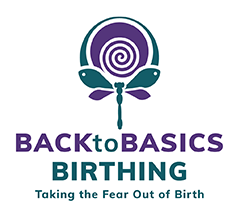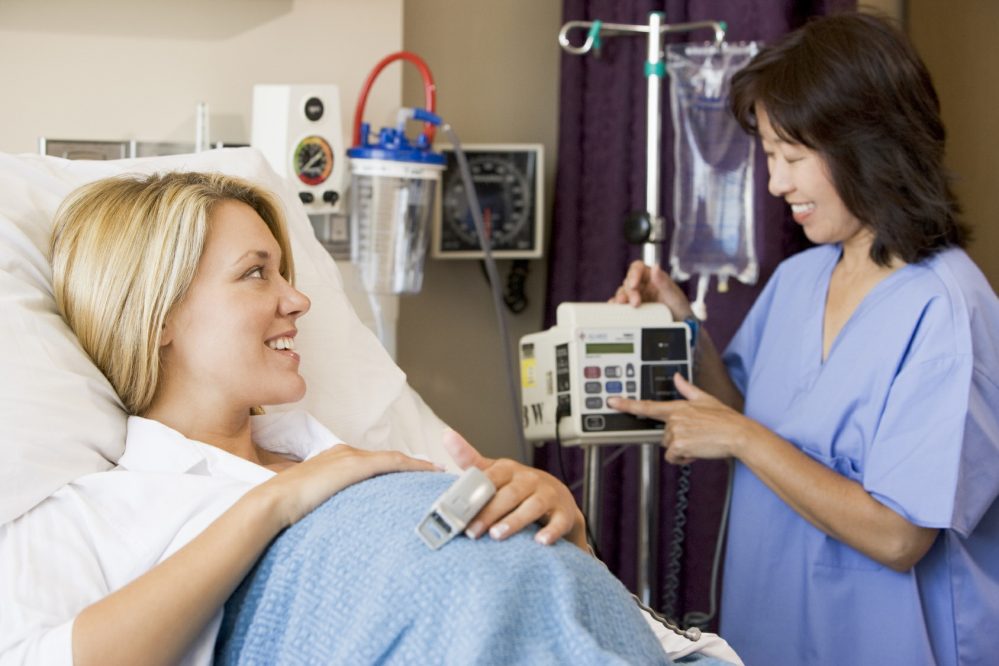Contact Vicki
If you have any questions or would just like more information please don't hesitate to get in touch by clicking the button below and filling out the contact form.
Contact Vicki

Group B Streptococcus (or more commonly referred to as GBS or Group B Strep) is a bacteria that is normally present in our bodies.
Around one fifth of women carry the bacteria without even knowing they have it.
In RARE cases GBS can cause serious illness and even death in newborn babies, but more commonly it will cause severe infection, which could lead to sepsis in newborns within the first week of birth.
Women are routinely tested now for GBS at 36 weeks by a vaginal swab (and sometimes an anal swab), but even if you test positive earlier in pregnancy you may test negative in future tests closer to your birth and vice versa.
If you do test positive for GBS your health care providers will recommend you have intravenous antibiotics during your labour to reduce the chances of your baby being exposed to GBS.
The Royal Australian and New Zealand College of Obstetricians and Gynaecologists (RANZCOG) predict your baby is more likely to develop a GBS infection if:
So that you can understand a lot more about GBS I have compiled a list of evidenced based links and articles and even some suggestions on what other women have done to reduce / eliminate the risk of testing positive for GBS.
This is purely to give you some guidance and provide you with quality information so that you can be informed and make the right choices for you when it comes to making decisions regarding GBS.
If you have other links that you feel could be added to this list please let me know so that I can share it with all women and their partners.
http://evidencebasedbirth.com/groupbstrep/
http://wisewomanwayofbirth.com/group-b-strep-what-you-need-to-know/
https://www.betterhealth.vic.gov.au/health/conditionsandtreatments/streptococcal-infection-group-b
http://www.mayoclinic.org/diseases-conditions/group-b-strep/basics/definition/con-20033853
http://www.babycenter.com.au/a1647/group-b-streptococcus
http://www.cdc.gov/mmwr/preview/mmwrhtml/rr5111a1.htm
http://www.gbss.org.uk/filepool/2007_04_Practising_midwife_water_birth_article.pdf
http://www.midwiferytoday.com/articles/garlic.asp
http://www.ncbi.nlm.nih.gov/pubmed/21322437
http://www.cdc.gov/groupbstrep/about/prevention.html
http://www.amc.edu/Patient/services/perinatal_outreach/documents/EarlyOnsetGBS.pdf
http://www.mothering.com/articles/treating-group-b-strep-are-antibiotics-necessary/
http://www.cdc.gov/mmwr/preview/mmwrhtml/rr5910a1.htm?s_cid=rr5910a1_w
http://www.ncbi.nlm.nih.gov/pubmed/21864820
http://www.drmomma.org/2009/09/gbs-group-b-strep-midwifery-homebirth.html
http://www.groupbstrepinternational.org/what-is-group-b-strep-2/
http://www.mommypotamus.com/group-b-strep/
http://www.sarawickham.com/research-updates/maternal-antibiotics-e-g-for-gbs-and-imbalance-in-babys-gut-bacteria/
https://www.healthychild.com/treating-group-b-strep-are-antibiotics-necessary/
If you have any questions or would just like more information please don't hesitate to get in touch by clicking the button below and filling out the contact form.
Contact Vicki